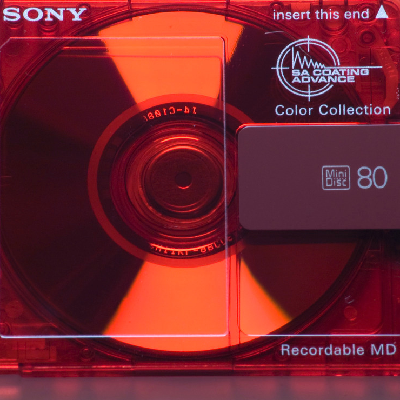For me
Mint
Manjaro
Zorin
Garuda
Neon
Ubuntu is massively overrated. It’s a bloated distro owned by a greedy corporation.
I respect a lot what they did though. Ubuntu and Fedora worked and improved a lot of Linux’s new technologies. Plus their focus and model is more focused on the server side.
Yeah. Ubuntu has kind of taken a turn over the years but its still a super user friendly distro and they have done a lot to make linux more accessible for the masses. They also serve as a base for a number of other distros to build off of an as a result theyre an easy choice for a newbie to gravitate towards.
the snaps are terrible and they now have ads in the server version (CLI)
Wait they just include lines of advertisements or something in the command line??
It’s in the MOTD. Very easy to permanently disable, but still annoying.
What??
What??
The shell MOTD defaults to an Ubuntu Premium ad. It’s low-key but it’s indisputably an ad.
Misinformation.
ads in the server version (CLI)
Dude, what?
I see it is in motd, but is it dynamic? I mean does it fetch new ad when needed?
I run the newest version of ubuntu server and it’s pretty much adds for ubuntu pro. But to be honest I don’t really mind it. They offer the extended updates for free for a handful of computers if you sign up for it. If the tradeoff for 10 years of support is some adds I am okay with it
OK, but you’re not seeing Coke ads in the CLI. It’s just for the pro version. Lets stop with the pearl clutching.
Pearl clutching is an exaggerated outage. They didn’t even show any outrage. Just noted a fact.
Have to agree. They had a great start by enhancing Debian and being user friendly but, then they just kind of lost their way.
It should probably take Mint’s place on this list.
Although, speaking as a fan of Mint who used it as my “daily driver” for years, I think the time has come for them to switch from Ubuntu to Debian and embrace Wayland. I know that, if I’d stayed with Mint, I’ve have gone to LMDE by now.
I agree on both. The reason I left Cinnamon was because I had to use Waydroid, so I switched to plasma and never came back.
Linux Mint surely is disabling more “features” from Ubuntu than it’s using at this point.
That’s why some people at wondering why wont Mint not rebase to Debian, and go from there… would be better than ‘repairing’ everything Ubuntu breaks.
Only issue I can see with LMDE compared to the Ubuntu variant is that some of their homegrown tools and stuff aren’t included in LMDE for whatever reason. But, if they shifted their focus to LMDE and added all the tools there to give you the proper Mint experience, I think it would be amazing.
indeed. Mint became what Ubuntu used to be, afaik.
I’ve never really used Ubuntu or Mint. I think I’ve installed both in VM but that’s it.
I agree with this entirely. Back when it was like V 3 or 4, it was amazing to get non-tech people into the Linux userspace. Now, it is atrocious and the last distro I’d ever suggest to someone.
Based.
All of them: communities are so used to blow their own horn that every Distro becomes overrated in the public debate.
Each single distro is “fine” at best.
Except for Debian.
Debian is Great, Debian is Love.And arch. Arch is godly.
(I use Arch btw.)
I’m gonna say “no”, but just by personal preference.
I agree that, if you’re skilled enough, 90% of distributions out there are completely useless once Arch and Debian are available.Couldn’t agree more. Arch is great if you need a malleable distro, Debian is for everything (else).
Debian is great if you want a stable distro. If you want the latest software run… Debian + Flatpak
Do you install ffmpeg via Flatpak?
In the spirit of your comment though, I have been meaning to try Debian Stable with Distrobox / Arch.
malleable distro
Hi. Gentoo user here. 👏
I’ve not used Gentoo in years but I really ought to give it another go. Do you still have to compile everything from scratch or are there binary repos now?
Bu the more you diverge from the default the more portage will compile packages for your setup.
I don’t know about you, but I don’t mail my disteos; rsync is much faster.
I’ve used Arch on many different computers over the years. It’s not stable, it breaks. I don’t understand why it’s great. Debian (minimal install) is better.
I’ve only had one problem with arch (it broke after an update once) except for that one problem it was always very stable and solid in my experience.
Debian is too “old” for me. I prefer bleeding edge and i refuse to use any flatpaks or such because they are a pain in the ass to set up right in my experience
Been at Ubuntu for a couple of years but I was pleasantly surprised when I went back to debian. Sticking to that one like shit on shingles.
Mint is definitely not overrated. It has done much for the community because they created a distro that is easy to understand if you switch to Linux, easy to maintain and mostly works out of the box. Also they don’t use snap.
Agreed. I just have better things to do than muck about with my OS. Just slap Mint on that fucker and get on with your life. Now, of course I i know that many people like to tinker and have everything just so. I’m not in any way knocking that. But if you just want minimal hassle Mint is the shit.
Noob mint user here; first distro, I really like it. What’s up with the snap contention that I keep seeing?
Snap is container Software. It’s a program that runs software in an isolated area. Snaps is made by canonical, the company behind Ubuntu. And it’s really hatred because, IIRC, it’s very slow and not completely open source
Manjaro. It just breaks itself randomly, and performs poorly. Endeavour / ARCO Linux are more stable
Manjaro still hasn’t broken once for me. I probably have more AUR packages than ones from the official repos at this point, and I’ve used the three branches it offers.
deleted by creator
@clobubba @valentino @nerdschleife @VoltaicGRiD I did the exact same thing. Mint and then manjaro got me to stick with Linux but I’d never recommend it now when endeavor os is right there
Manjaro is fine. Ran it for a year straight before I broked it.
My 2 cents is this. Don’t install from AUR unless you have to. Thats how i broked my manjaro install when i was uninstalling packages to fix a bad install. So my install order to protect myself is:
Main Repo
Flatpak (if its not a system tool like an IDE)
AUR
But the AUR is the best part of Arch. I agree with you but why not use Arch or EndeavourOS and be free to use the AUR without fear.
Yes the AUR is the best feature of Arch, which is why I am still using an Arch distro and not Fedora or Debain.
However one of Manjaro’s features which other Linux distros don’t have, is how much of the OS’s troubleshooting and repair is in GUIs. For the most part I can setup a fresh Manjaro install without touching the command line once. And that’s how I want to use my machines, I want to just browse the web, play games, or do office tasks (the reason I use a computer), not trying to figure out how to install a GUI package manager from the AUR in EndeavourOS since it doesn’t come with one.
“Ran it for a year straight alright before I broked it”. Exactly.
It’s fine. I have a dozen installs of it out in the wild, with very illiterate users, and have had almost no calls from them for problems in the 5+ years that they’ve been using it.
Everyone likes to hate Manjaro, but frankly it’s bulletproof.
Aaaaand… commence the downvoting.
You have to keep updating it fairly often, otherwise things slip through the cracks. Most recently on a machine that hadn’t been updated in about a year it wasn’t able to install anything because it couldn’t update its GPG keyring anymore. I find the solution to be
pacman-keys --refresh-keysor something like that. Why they can’t do that as part of one of the updates, I don’t know.There’s also small things that crop up during normal installs but that’s to be expected on any distro due to bugs in various packages.
I personally found Manjaro to be pretty nice, but i do have a lot of linux experience
Manjaro is amazing ( for a while ).
RIP
Great, just in time. Uninstall it and try a serious distro like Fedora or Opensuse TW
I wouldn’t consider Fedora or Opensuse TW better than Manjaro. Just trading one issue for another. Honestly I replaced my 1 year old Manjaro install (when I borked my DE) with Fedora.
Fedora lasted 1 month before the btfs filesystem broke and I lost all of my files with no way to recover. Ontop of the difficulty of adding community copr repos for features like XPadNeo, DNF being so slow that Discover would barley function, and being about 2 months behind software fixes for a specific graphic driver bug that prevented me from playing some UE4 game.
Wasn’t Manjaro supposed to be the stable version of Arch? That’s what I’ve heard.
The few years I had with Arch was pretty nice, but when something broke, it was pain to get it back working because downgrading wasn’t (isn’t?) supported. I guess I should have used snapshots of my whole system back then.
Honestly straight arch was more stable for me. I barely knew anything about the AUR back then, I didn’t break it installing or tweaking anything. I just customised KDE a bit. I didn’t even have a dedicated GPU - I was using Intel integrated
Stable is a vague concept but Manjaro takes more time than Arch to update software versions. To me both are rock solid.
Still no breaks on my side after 3 years of daily use.
Arch
-
Being 64-bit doesn’t make you special, my Nintendo 64 is 27 yrs old and it’s 64-bit
-
Being bleeding edge doesn’t make you special, all I have to do is sit on a nail and now I’m bleeding edge too
-
Rolling releases don’t make you special, anyone can have those if they take a shit on a steep slope
/s (was hoping we’d be able to leave this behind on reddit, but alas, people’s sense of humor…)
I know you’re making a joke but I was convinced recently to try out Arch. I’m running it right now. I was told it’s a DIY distro for advanced users and you really have to know what you’re doing, etc etc. I had the system up and running in 20 minutes, and about an hour to copy my backup to /home and configure a few things. I coped the various pacman commands to a text file to use as a cheat sheet until muscle memory kicked in.
…and that was it. What is so advanced about Arch? It’s literally the same as every other distro. “pacman -Syu” is no different from “zypper dup” in Tumbleweed. I don’t get the hype. I mean it’s fine. I don’t have any overwhelming desire to use something else at the moment because it’s annoying to change distros. It’s working and everything is fine. As I would expect it to be. But people talk about Arch like its something to be proud of? I guess the relentless “arch btw” attitude made me think it would be something special.
I guess the install is hard for some people? But you just create some partitions, install a boot loader, and then an automated system installs your DE. That’s DIY? You want DIY go install NixOS or Void, or hell, go OG with Slackware. Arch is way overrated. That doesn’t mean it’s bad, but it’s just Linux and it’s no different from anything else. KDE is KDE no matter who packages it.
Arch is supposed to be used, it is a normal distribution. It is not hard, it is simple. That’s its whole philosophy.
It is only difficult if you are new to Linux, because it doesn’t hold your hands and has no opinion about a lot of things hence you must make many decisions yourself and configure everything like you need it. You have to know what you need and want.
The notion of a difficult distro for the sake of it is ridiculous. Who would ever want to use it? Arch is popular, because it is easy to use, but lets you configure the system to your desires for the most part.
Yeah I get that. I’m running it as we speak. I suppose my expectations were set more by the community than the distro itself. Arch users, by and large (and perhaps not you specifically), talk about Arch as if Jesus Christ himself built pacman. I didn’t find it hard to install, but as you say I’ve been using Linux for nearly 30 years and I know exactly what I want. I got caught up the hype and the DIY aspect I suppose, and I was evangelized to pretty hard to try it. Maybe it’s people new to Linux using fdisk for the first time thinking they did something cool? They talk about “getting through the install” like it’s some rite of passage.
I think I probably still prefer Tumbleweed but I’m not going to bother changing again any time soon unless Arch gives me a reason to because it’s not worth the hassle. Arch and Tumbleweed are pretty similar but I think Tumbleweed has a few extra touches that I appreciate.
Just to reiterate my position, I’m not saying anything is wrong with Arch but the hype is enormous and I’m not fully convinced it’s deserved. Something like NixOS on the other hand is starting to gain a lot of buzz and I think that’s warranted because it’s so radically different it deserves to be talked about. So far Nix is my “learning in a VM” distro.
Isn’t Gentoo the one for that title?
Gentoo isn’t hard either, but it assumes you need what it offers. If you don’t actively want to recompile this and that package with a custom combination of features then it’s wasted and its normal way of doing things seems cumbersome.
The Gentoo install isn’t hard, it’s very methodical. But it is a much more in-depth process than Arch, that’s for sure. Granted these days Gentoo seems to only do Stage 3 installs which is half the system in a tarball anyway. The way people spoke about getting through the Arch install I was thinking it would be a step-by-step process like Gentoo is. It’s really not.
10 years ago the installer dumped you out in the CLI and you had to run pacman -S kde (or whatever your desktop environment was), so that was much more of a “DIY but with good tools and the best wiki” kind of deal.
But yeah, agreed. These days it’s pretty dang easy.
That’s exactly how I installed it. The install media boots to cli. You partition your disks, install the boot loader, add a user, and then pacman does the rest. I didn’t really find this all that “hands on”. Sure it’s not the same as clicking Next on an installer but none of it is very complicated at all. Don’t get me wrong, as someone else replied, being needlessly difficult is stupid. But when people are saying “advanced users only, DIY, etc” I’m thinking like a Gentoo install or something. I was surprised how simple it was with all the hype and evangelizing that goes on around Arch. It’s a good package manager, AUR seems interesting even if I don’t really need it. But you must admit the hype is a bit overboard.
Oh, yeah, for sure. AUR stuff is a somewhat more hands-on, at least if you actually read/edit PKGBUILD files the way you’re meant to, and it’s not too hard to shoot yourself in the foot if you’ve never had the guard rails off before, but yeah, pacman makes stuff easy.
“Advanced users only” these days seems to generally just mean, “CLI is a hard requirement” and maybe “you have to edit config files and not use a GUI” or (heaven forbid) “you may need to actually read and follow instructions”
You are saying that the elitist reputation of Arch overblown. I agree. It is not that Arch it self is overrated though. Arch is awesome ( and not as “hard” as people make it out to be - we agree on that ).
My favourite distro right now is EndeavourOS and that is just easier to install Arch.
I guess I used a whole lot of words to say what you just did in just a few sentences. Thanks for summarizing my thoughts. Just out of curiosity though, why EndeavourOS? See this is also something that tripped me up. I see quite a few Arch spinoffs that all claim to be easier versions which naturally lead me to believe Arch itself was complicated. Which again is probably a community/communication problem and has nothing to do with the OS itself.
I run Arch as my daily but I installed Endeavour as my teen’s first intro to Linux (and also because I couldn’t be arsed manually installing Arch). I really liked Endeavour’s Welcome screen thing. It has yay installed by dafault and you can run stuff like system update just from pressing a button on that Wecome UI. Which means my teen who is clueless about pacman and has no fucks to give for learning can run and install stuff just from clicking buttons.
As to whether it’s better or worse than Manjaro (which is my usual go to for Arch based newbie distros), I’m not sure. I think Endeavour feels lighter on its feet than Manjaro but I haven’t dine any benchmarks to say for sure. I do like pamac and have it installed on my system and I do think it’s great for new folks or people who like a GUI. That said, you can still install EndeavourOS and plonk pamac on there too.
Ah, I see. That sounds like a completely fair scenario for using something a little more automated. Thanks for sharing.
Arch seems fine and I’ll probably stay here for at least another few months, out of laziness if nothing else. If I’m not completely happy I’ll probably end up back on Tumbleweed which is my usual daily, but I can’t say I’ve had any problems that would drive me back immediately.
@polygon @valentino @turkalino it’s kinda funny. Arch is like 2 steps away from just being a normal distro. Which is why Endeavor and Steam OS work so well. Just add some functions to take care of things like mirrors or installing the AUR or whatever and it’s a perfectly noob friendly distro. People got indignant about Arch install being added but at the end of the day I’d bet that most arch users at this point have the same defaults
Well, most people installing Arch for the first time have no idea what a typical Linux install does under the hood. That makes it a worthwhile learning experience. The same commands you use during the setup you can later use to fix or change things. It basically forces you to become a somewhat proficient Linux user.
Which GPU are you using?
I spent a good 10-20 hours just trying to get it to boot to a largely error-free experience with SDDM and KDE. I set out to daily drive Hyprland and what a shit show that turned out for me on Nvidia GPU and Alder Lake CPU.
The basic gist is you have add nvidia, nvidia_uvm, nvidia_modeset and nvidia_drm to your mikinitcpio conf, regenerate your initramfs, then adding kernel boot parameters nvidia-drm.modeset=1 and i915.modeset=0 before it can even boot to a usable state. Apparently since 6.0, the igpu grabs the display and refuses to give it back. I don’t know how the fuck any “normal” user is going to figure out how to do all of that. Then I spent another evening trying to figure out how to get VAAPI working properly. There’s lots of outdated info in the wiki and not much else to go on, but I figured it out eventually.
BUT, having said this, I do recognise when you go Arch, you’re asking for all of these jank. And, for science, I wiped and tried out endeavouros, and it was surprisingly painless, mostly just worked out of the box (I didn’t check if it was nouveau but it might have been, I also didn’t check if VAAPI was working).
In the end after what seems like 400 wipes and reinstalls, I got it working just right. But it wasn’t painless and it certainly isn’t meant for the faint hearted.
Yes I know the fault largely lies with Nvidia and their shitty proprietary drivers, and so on. But the exact same machine worked just fine in W11, without a single jank or terminal command (not 100% true because I did run OOBE\BYPASSNRO to skip the online junk).
Moral of the lesson: go vanilla Arch if you are comfortable with figuring out shit on your own. Otherwise, stay the hell away and pick a starter distro like Fedora or Pop!_OS that is mostly jank-free.
obligatory I use Arch btw.
I think your experience is more to do with nvidia + Wayland than anything OS specific. Although I think other distros have done a lot of patching and coding around nvidia’s incompetence to get Wayland to work better and I think Arch doesn’t really do this sort of thing. Definitely seems like you unwittingly took on a project.
I also use nvidia but I have no desire to move to Wayland any time soon. X11 works just fine unless you get into esoteric setups like multiple monitors with different refresh rates. My first boot into KDE with Arch was completely broken and I thought “okay, here comes the hard part” until I realized it was defaulting to Wayland. Changed it to X11 in sddm and it’s perfect. I use my ForceCompositionPipeline script on login and set kwin to force lowest latency and it’s smooth as butter.
Wayland is the future but nvidia is definitely gatekeeping that future. I’ve got a 3080 in this machine that is going to last a pretty long time I suspect, but unless nvidia can manage to remove head from ass I see AMD in my future.
Same, my next GPU will likely be an AMD or Intel, been itching to give Intel my money for sometime. They need battlemage to just barely keep up with the same generation xx60ti and they’ve got my business.
Some people needs recent packages. This is the main point of Arch IMO.
Rolling releases
Yep, this phrase is now broken for me. It’s all just turds rolling down hills from here on out. Thanks for that
Even when you are poking fun it is hard to find fault with Arch. Not even “funny because it is true” material.
-
Ubuntu. I think of it as the Yahoo of linux distros. It used to be good, but then they made terrible decisions that ultimately made them irrelevant.
Seeing Ubuntu now is like seeing your (previously) favourite musician, sold out and washed up.
More like OpenOffice. It still has some power on its branding, but new users should stay away from it and go for LibreOffice, that is any other main distro (Arch, openSUSE, Linux Mint, Debian, etc.). There’s nothing exciting happening in Ubuntu anymore, but a lot of people still know its name.
I wish it were irrelevant. It’s the default in a lot of non-hobby use cases. Even if it’s nobody’s favorite, switching requires a business reason and certain degree of consensus among devs/managers/partners/customers.
Gonna go with Manjaro. I can’t, for the life of me, understand why it gets the support it does. It’s not fantastic to begin with, with an apparently incompetent management team. Add in that all the theming is flat and lifeless, and I’m just confused.
I mean, any Arch derived distro with an “easy installer” kinda confuses me. Archinstall is fairly easy to use (although a bit ugly), and most other Arch based distros seem to miss what I see as the main point of Arch: getting to know and personalize your system. So things like Endeavor, Xero, etc. Don’t make a lot of sense to me either. But at least they’re not effectively accidentally DDOSing the AUR…
https://github.com/arindas/manjarno
Endeavouros is more community welcoming & does not make bad choices with a real copyleft license.
Oh, I totally agree. If I was going to recommend an Arch derivative with an easier installer, Endeavor would be the one.
I still think, though, if you’re looking for an “easy way to install Arch,” you’re gonna be happier with a different distro. Fedora or OpenSuse Tumbleweed maybe.
One good reason to have distros like EndeavourOS is if you have to use an Enterprise WiFi network while installing Arch. Pain in the ass to get iwd to work with them.
deleted by creator
Okay. Then use Endeavor. Easy to install, good tools, and not run by people who’ve let their SSL cert lapse 4 times.
But honestly, if you can’t deal with Arch install, I have to wonder if you wouldn’t be better off with something other than Arch and Arch based distros. Generally speaking, Arch based distros require more command line and config file editing.
I just don’t think Arch and Arch based distros are a good fit for beginners. If you’re intimidated by a TUI installer, you should start somewhere else. Fedora has a… usable installer and great GUI tools, for instance.
I’m not judging or bashing on anyone. But it’s like trying to learn how to knit by starting with a sweater. You’re in over your head before you even get started.
Manjaro is NOT Arch with a user-friendly installer. Once you have installed Manjaro, the system you have is not Arch. Which leads to one of the biggest problems with Manjaro—that it uses the AUR but is totally incompatible with it. Manjaro has its own kernels. Manjaro has its own package repositories. Manjaro uses its own configurations. The crappy management and governance of Manjaro screws all of this up from time to time.
What you described is EndeavourOS.
The notion of there being underrated or overrated distros is, itself, overrated. No, there should not (and cannot) be “one distro to rule them all” because different people have different needs.
Remember that in the free software community we have the freedom to modify and share everything. Those “overrated” distros exist because someone saw a need for them, and they are widely used because other people agree. If Debian was good enough for every use case why do these other distros exist? Why doesn’t everyone just use Debian?
I already gave mine. They’re in the video.
You’re going to have to start adding your lemmy contact info in the podcast now lol
@valentino NixOS – I mean it is really nice to have a declarative OS, but I don’t like its logo.
Gotta appreciate the pettiness of this. 😆
waaaat? I like the logo tho!
that logo is ancient and unappealing
I tried installing NixOS in a VM once and it spent at least 45 minutes doing something with python and I said “That’s enough of that” and killed the VM.
Python works, it’s pip that doesn’t work because it’s trying to install stuff into an immutable distro
I’ve never seen it before until now, but you’re totally right. I’m going to start hating it too now.
You should take a look at the Gentoo logo. That’s an international hate crime of a logo.
“Gaming” distros, save for Steam OS as that’s for a console-like device.
Pretty much every distro can play games relatively close in performance to any other distro. The only real difference is how new your GPU drivers are.
Ubuntu is not overrated. It probably gets more hate than it deserves just because it is so popular. That said, I hate it. Slow and opinionated ( by bad opinions ).
Manjaro because it is lipstick on a pig. Looks gorgeous, seems to offer the benefits of Arch with less pain, is total garbage.
But it is less pain. Distros that package Arch to make it fit for human consumption perform a vital service for it IMO. Arch is a fine distro that I could never use otherwise because it’s too much work to keep it together. With Manjaro, Endeavour, Garuda etc. you get to use Arch albeit indirectly.
Mostly, I agree. Use one of the derivatives if you’re not ready for Arch itself. But, Manjaro has legitimate criticisms against it. They’ve made mistakes in the past which makes it hard to trust them and holding back packages for “stability” will eventually break your system if you start mixing in the AUR.
ETA: Here is a different link, since the original doesn’t seem to be working for me anymore.
I see this stability argument come up a lot but it’s not like Arch is a paragon of stability. I wouldn’t use Arch for a server, for example, I would use Debian stable.
For a desktop machine it depends on what your needs are. If it’s a personal, non-critical desktop machine then I don’t care about stability that much. Yeah Manjaro screws the pooch sometimes but the way it makes Arch simpler to use makes up for the occasional hiccup.
AUR does not figure into any of this IMO. Using “stability” or “compatibility” when it comes to AUR is nonsense. You take AUR packages as they come, there are no guarantees of stability or security or anything, and you should expect them to break at any time. If I need to rely on a 3rd-party package I use flatpaks or appimages not AUR.
I hear that. I wasn’t saying that the AUR is what causes the problems though. The AUR works better in Arch where everything is kept up to date, since that’s what the AUR targets. Manjaro holding back packages causes problems because the libraries and other packages might not be as up to date as the AUR scripts expect. This ends up causing more potential issues than the AUR otherwise would. If you’re not using the AUR then this all won’t have any effect on your usage of Manjaro, of course.
Only Manjaro. Every distro has something different. Unfortunately, regular breakages isn’t a differentiation people are after.
Removed by mod
Maybe. Mint came first, and I wonder what purposes those other ones were trying to serve. I don’t know or care enough about the others. Do they differentiate enough to bother with?
At first, ElementaryOS was really trying to be for MacOS refugees what Mint is for Windows refugees. Later on they were trying to be their own ecosystem, and I haven’t heard from them since. Zorin…yeah Mint exists, what are you doing.
Haven’t heard of Rhino.
For me, every non-mainstream distro. IMO every fork which is just a rebuild .iso should ratherly be an install script and extra repos. Simply because the lack of maintenancers and userbase tends to make those projects to die or getting updates way less often tahn should. People should join any existing project rather than creating new ones.
Or: meta packages! (Debian nomenclature, but it probably exists on non-Debian distros as well)
Much more secure than executing random code online, usually with root privileges. And reuses the existing infrastructure of the “parent” distro.
For all its strengths, Arch is kind of a pain in the ass to maintain. I daily drive it but I risk breaking something if I don’t update regularly. My youtube laptop can’t update at all anymore from something I don’t care to fix (when Firefox breaks then its a big deal lmao) and my main rig needed to use the fallback initramfs for a while after I forgot to update for a while. mkinitcpio -P (I think) fixed it though
What do you mean exactly? A running system shouldn’t spontaneously break from not being updated. It’s just that partial upgrades can break compatibility/dependencies, but running full system upgrades should be fine, as long as you pay attention to breaking changes and major version bumps. Also with timeshift it should always be possible to get back to a working state.
I think the main issue with Arch comes if you try to use it like Debian Stable. Like, if you don’t run
pacman -Syufor a year, you probably won’t have a bootable system the next time you try. How about six months? My guess is you’d still be stuck fixing shit. Where is the safe “X” in “as long as I update every X, I’ll be fine?” Who knows. That’s not a very well-defined problem.I sort of understand the issue here. I use Arch because I’m picky about system things, and it seems to require going against the fewest strongly held platform opinions in order to get it the way I want it. In an ideal world, I’d get it set up that way and not need to touch it very much afterwards. Arch requires frequent touches. Fortunately, almost none of them require any real mental energy, and I’m willing to do the occasional bit of “real work” if needed to keep it going, but that’s a trade-off that may be more painful for some than others.
Yeah that’s what I meant, not updating for a while makes it more likely to break next time I try. I think the time I had to use the fallback I waited something like close to a month?
I don’t get this either. Before my current PC, my last install was 6 years old. I could count on one hand the number of times I broke that install and every single time was my own damn fault.
I had Manjaro on a laptop that didn’t get updated for about a year. Broken on update because I didn’t check Arch news first to see if manual intervention was needed. Was still faster to fix than a backup-reinstall.
Countless other installs of Arch or derivatives on various PCs and laptops without issue.
There can definitely be more of a learning curve but once you’re set, I find it much easier to maintain than other distros. 🤷🏻♀️
































